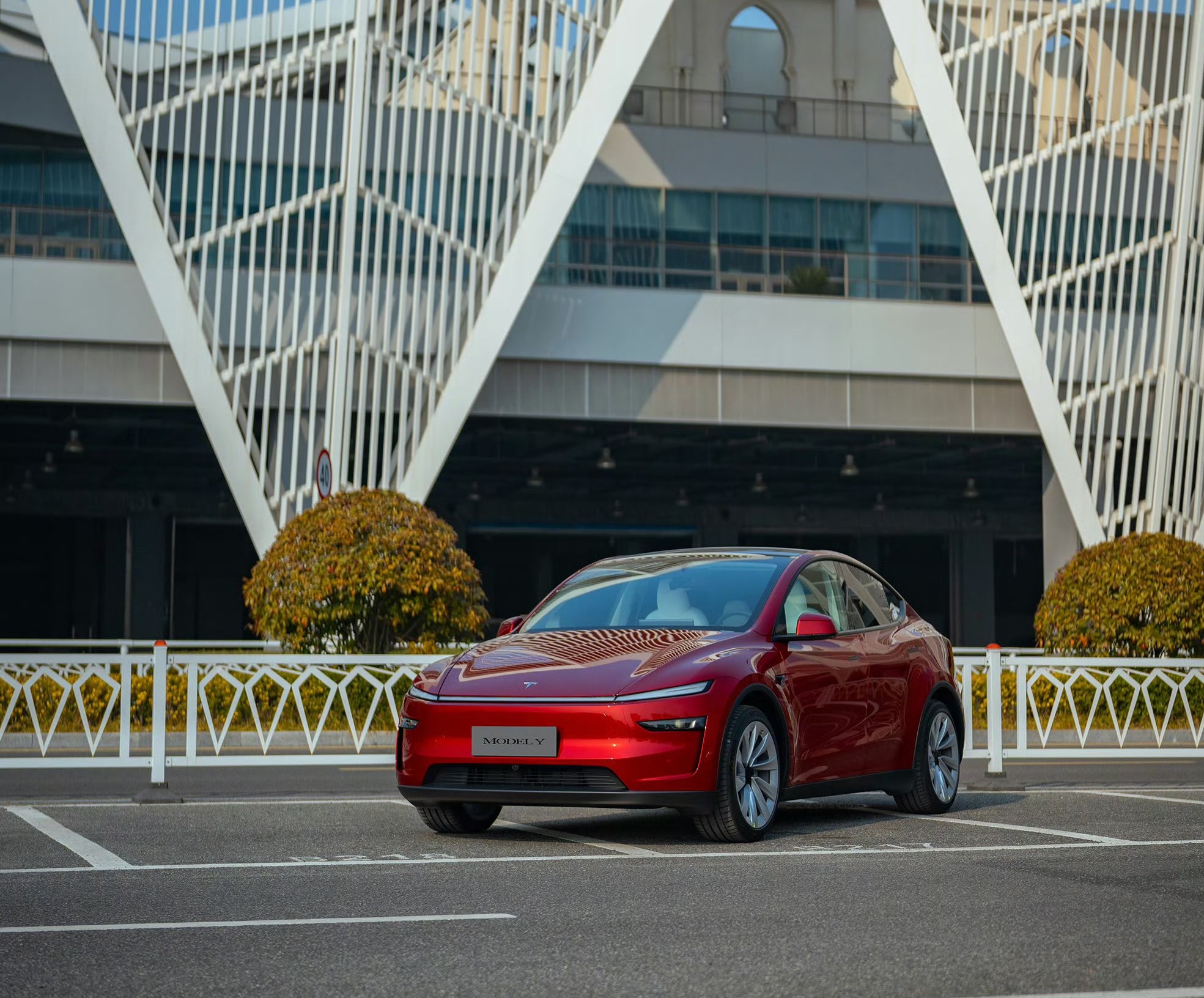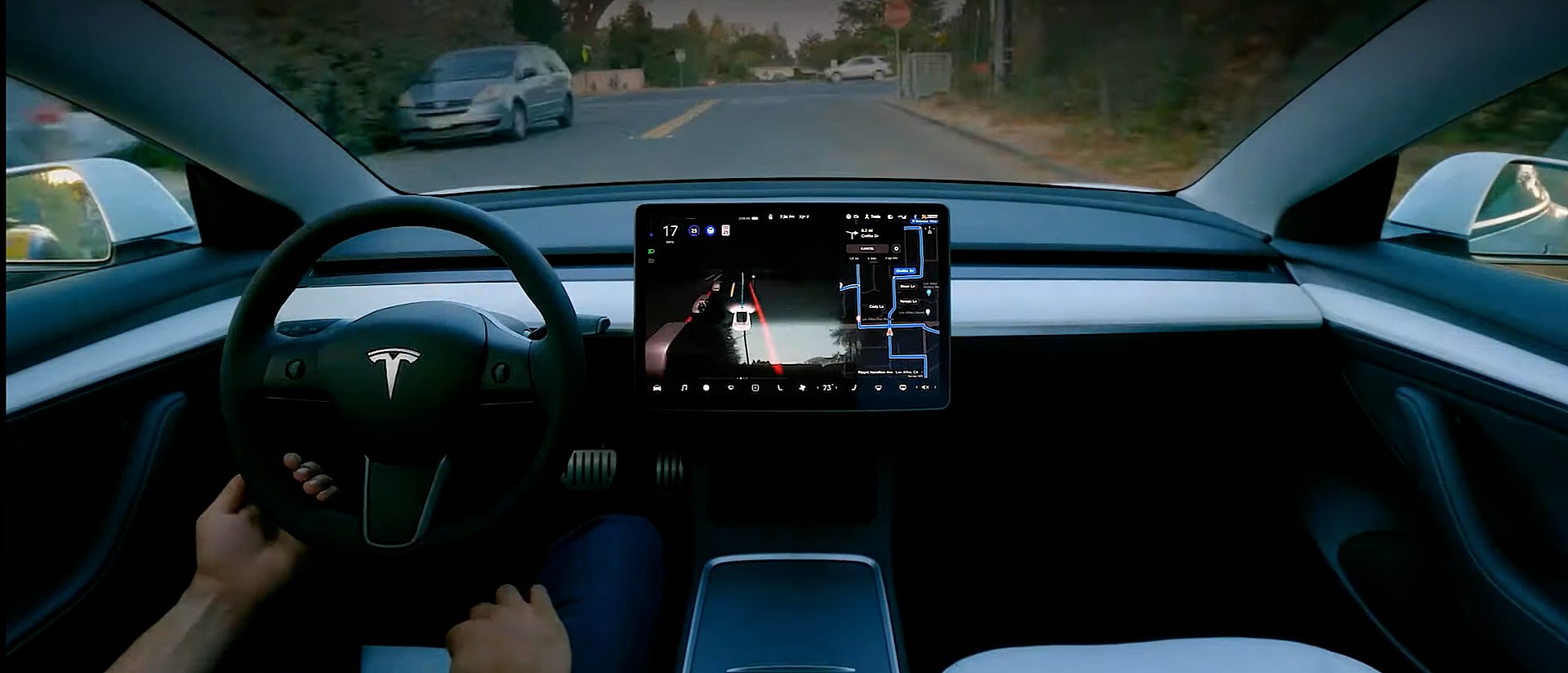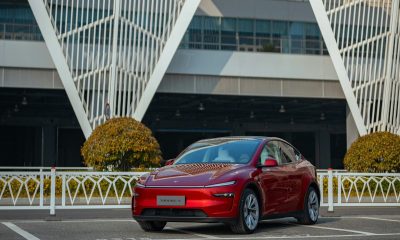This is a preview from our weekly newsletter. Each week I go ‘Beyond the News’ and handcraft a special edition that includes my thoughts on the biggest stories, why it matters, and how it could impact the future.
Earlier this week, NTSB Chief Jennifer Homendy made some disparaging comments regarding Tesla’s use of “Full Self-Driving” to explain its semi-autonomous driving suite. The remarks from Homendy show that Tesla may not have a fair chance when it ultimately comes to proving the effectiveness of its FSD program, especially considering agency officials, who should remain impartial, are already making misdirected comments regarding the name of the suite.
In an interview with the Wall Street Journal, Homendy commented on the company’s use of the phrase “Full Self-Driving.” While Tesla’s FSD suite is admittedly not capable of Level 5 autonomy, the idea for the program is to eventually roll out a fully autonomous driving program for those who choose to invest in the company’s software. However, instead of focusing on the program’s effectiveness and commending Tesla, arguably the leader in self-driving developments, Homendy concentrates on the terminology.
Homendy said Tesla’s use of the term “Full Self-Driving” was “misleading and irresponsible,” despite the company confirming with each driver who buys the capability that the program is not yet fully autonomous. Drivers are explicitly told to remain vigilant and keep their hands on the wheel at all times. It is a requirement to use Autopilot or FSD, and failure to do so can result in being locked in “Autopilot jail” for the duration of your trip. Nobody wants that.
However, despite the way some media outlets and others describe Tesla’s FSD program, the company’s semi-autonomous driving functionalities are extraordinarily safe and among the most complex on the market. Tesla is one of the few companies attempting to solve the riddle that is self-driving, and the only to my knowledge that has chosen not to use LiDAR in its efforts. Additionally, Tesla ditched radar just a few months ago in the Model Y and Model 3, meaning cameras are the only infrastructure the company plans to use to keep its cars moving. Several drivers have reported improvements due to the lack of radar.
These comments regarding FSD and Autopilot are simple: The terminology is not the focus; the facts are. The truth is, Tesla Autopilot recorded one of its safest quarters, according to the most recently released statistics that outlined an accident occurring on Autopilot just once every 4.19 million miles. The national average is 484,000 miles, the NHTSA says.
It isn’t to say that things don’t happen. Accidents on Autopilot and FSD do occur, and the NHTSA is currently probing twelve incidents that have shown Autopilot to be active during an accident. While the conditions and situations vary in each accident, several have already been proven to be the result of driver negligence, including a few that had drivers operating a vehicle without a license or under the influence of alcohol. Now, remind me: When a BMW driver is drunk and crashes into someone, do we blame BMW? I’ll let that rhetorical question sink in.
Of course, Homendy has a Constitutional right to say whatever is on her mind. It is perfectly reasonable to be skeptical of self-driving systems. I’ll admit, the first time I experienced one, I was not a fan, but it wasn’t because I didn’t trust it. It was because I was familiar with controlling a vehicle and not having it manage things for me. However, just like anything else, I adjusted and got used to the idea, eventually becoming accustomed to the new feelings and sensations of having my car assist me in navigating to my destination.
To me, it is simply unfortunate for an NTSB official to claim that Tesla “has clearly misled numerous people to misuse and abuse technology.” One, because it isn’t possible, two, because it would be a massive liability for the company, and three, because Tesla has never maintained that its cars can drive themselves. Tesla has never claimed that its cars can drive themselves, nor has Tesla ever advised a driver to attempt a fully autonomous trek to a destination.
The numerous safety features and additions to the FSD suite have only solidified Tesla’s position as one of the safest car companies out there. With in-cabin cameras to test driver attentiveness and numerous other safety thresholds that drivers must respond to with the correct behaviors, Tesla’s FSD suite and its Autopilot program are among the safest around. It isn’t favorable for NTSB head Homendy to comment in this way, especially as it seems to be detrimental to not only Tesla’s attempts to achieve Level 5 autonomy but the entire self-driving effort as a whole.
A big thanks to our long-time supporters and new subscribers! Thank you.
I use this newsletter to share my thoughts on what is going on in the Tesla world. If you want to talk to me directly, you can email me or reach me on Twitter. I don’t bite, be sure to reach out!
-Joey
Elon Musk
Tesla analysts believe Musk and Trump feud will pass
Tesla CEO Elon Musk and U.S. President Donald Trump’s feud shall pass, several bulls say.

Tesla analysts are breaking down the current feud between CEO Elon Musk and U.S. President Donald Trump, as the two continue to disagree on the “Big Beautiful Bill” and its impact on the country’s national debt.
Musk, who headed the Department of Government Efficiency (DOGE) under the Trump Administration, left his post in May. Soon thereafter, he and President Trump entered a very public and verbal disagreement, where things turned sour. They reconciled to an extent, and things seemed to be in the past.
However, the second disagreement between the two started on Monday, as Musk continued to push back on the “Big Beautiful Bill” that the Trump administration is attempting to sign into law. It would, by Musk’s estimation, increase spending and reverse the work DOGE did to trim the deficit.
Every member of Congress who campaigned on reducing government spending and then immediately voted for the biggest debt increase in history should hang their head in shame!
And they will lose their primary next year if it is the last thing I do on this Earth.
— Elon Musk (@elonmusk) June 30, 2025
President Trump has hinted that DOGE could be “the monster” that “eats Elon,” threatening to end the subsidies that SpaceX and Tesla receive. Musk has not been opposed to ending government subsidies for companies, including his own, as long as they are all abolished.
How Tesla could benefit from the ‘Big Beautiful Bill’ that axes EV subsidies
Despite this contentious back-and-forth between the two, analysts are sharing their opinions now, and a few of the more bullish Tesla observers are convinced that this feud will pass, Trump and Musk will resolve their differences as they have before, and things will return to normal.
ARK Invest’s Cathie Wood said this morning that the feud between Musk and Trump is another example of “this too shall pass:”
BREAKING: CATHIE WOOD SAYS — ELON AND TRUMP FEUD “WILL PASS” 👀 $TSLA
She remains bullish ! pic.twitter.com/w5rW2gfCkx
— TheSonOfWalkley (@TheSonOfWalkley) July 1, 2025
Additionally, Wedbush’s Dan Ives, in a note to investors this morning, said that the situation “will settle:”
“We believe this situation will settle and at the end of the day Musk needs Trump and Trump needs Musk given the AI Arms Race going on between the US and China. The jabs between Musk and Trump will continue as the Budget rolls through Congress but Tesla investors want Musk to focus on driving Tesla and stop this political angle…which has turned into a life of its own in a roller coaster ride since the November elections.”
Tesla shares are down about 5 percent at 3:10 p.m. on the East Coast.
Elon Musk
Tesla scrambles after Musk sidekick exit, CEO takes over sales
Tesla CEO Elon Musk is reportedly overseeing sales in North America and Europe, Bloomberg reports.

Tesla scrambled its executives around following the exit of CEO Elon Musk’s sidekick last week, Omead Afshar. Afshar was relieved of his duties as Head of Sales for both North America and Europe.
Bloomberg is reporting that Musk is now overseeing both regions for sales, according to sources familiar with the matter. Afshar left the company last week, likely due to slow sales in both markets, ending a seven-year term with the electric automaker.
Tesla’s Omead Afshar, known as Elon Musk’s right-hand man, leaves company: reports
Afshar was promoted to the role late last year as Musk was becoming more involved in the road to the White House with President Donald Trump.
Afshar, whose LinkedIn account stated he was working within the “Office of the CEO,” was known as Musk’s right-hand man for years.
Additionally, Tom Zhu, currently the Senior Vice President of Automotive at Tesla, will oversee sales in Asia, according to the report.
It is a scramble by Tesla to get the company’s proven executives over the pain points the automaker has found halfway through the year. Sales are looking to be close to the 1.8 million vehicles the company delivered in both of the past two years.
Tesla is pivoting to pay more attention to the struggling automotive sales that it has felt over the past six months. Although it is still performing well and is the best-selling EV maker by a long way, it is struggling to find growth despite redesigning its vehicles and launching new tech and improvements within them.
The company is also looking to focus more on its deployment of autonomous tech, especially as it recently launched its Robotaxi platform in Austin just over a week ago.
However, while this is the long-term catalyst for Tesla, sales still need some work, and it appears the company’s strategy is to put its biggest guns on its biggest problems.
News
Tesla upgrades Model 3 and Model Y in China, hikes price for long-range sedan
Tesla’s long-range Model 3 now comes with a higher CLTC-rated range of 753 km (468 miles).

Tesla has rolled out a series of quiet upgrades to its Model 3 and Model Y in China, enhancing range and performance for long-range variants. The updates come with a price hike for the Model 3 Long Range All-Wheel Drive, which now costs RMB 285,500 (about $39,300), up RMB 10,000 ($1,400) from the previous price.
Model 3 gets acceleration boost, extended range
Tesla’s long-range Model 3 now comes with a higher CLTC-rated range of 753 km (468 miles), up from 713 km (443 miles), and a faster 0–100 km/h acceleration time of 3.8 seconds, down from 4.4 seconds. These changes suggest that Tesla has bundled the previously optional Acceleration Boost for the Model 3, once priced at RMB 14,100 ($1,968), as a standard feature.
Delivery wait times for the long-range Model 3 have also been shortened, from 3–5 weeks to just 1–3 weeks, as per CNEV Post. No changes were made to the entry-level RWD or Performance versions, which retain their RMB 235,500 and RMB 339,500 price points, respectively. Wait times for those trims also remain at 1–3 weeks and 8–10 weeks.
Model Y range increases, pricing holds steady
The Model Y Long Range has also seen its CLTC-rated range increase from 719 km (447 miles) to 750 km (466 miles), though its price remains unchanged at RMB 313,500 ($43,759). The model maintains a 0–100 km/h time of 4.3 seconds.
Tesla also updated delivery times for the Model Y lineup. The Long Range variant now shows a wait time of 1–3 weeks, an improvement from the previous 3–5 weeks. The entry-level RWD version maintained its starting price of RMB 263,500, though its delivery window is now shorter at 2–4 weeks.
Tesla continues to offer several purchase incentives in China, including an RMB 8,000 discount for select paint options, an RMB 8,000 insurance subsidy, and five years of interest-free financing for eligible variants.
-

 Elon Musk1 day ago
Elon Musk1 day agoTesla investors will be shocked by Jim Cramer’s latest assessment
-

 News6 days ago
News6 days agoTesla Robotaxi’s biggest challenge seems to be this one thing
-

 News2 weeks ago
News2 weeks agoTesla’s Grok integration will be more realistic with this cool feature
-

 Elon Musk2 weeks ago
Elon Musk2 weeks agoElon Musk slams Bloomberg’s shocking xAI cash burn claims
-

 News2 weeks ago
News2 weeks agoTesla China roars back with highest vehicle registrations this Q2 so far
-

 News2 weeks ago
News2 weeks agoTexas lawmakers urge Tesla to delay Austin robotaxi launch to September
-

 News2 weeks ago
News2 weeks agoTesla dominates Cars.com’s Made in America Index with clean sweep
-

 Elon Musk1 week ago
Elon Musk1 week agoFirst Look at Tesla’s Robotaxi App: features, design, and more
















